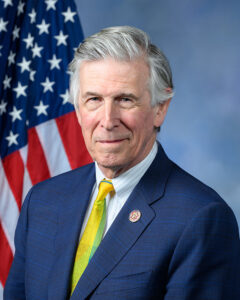13 Elections Face Fairfax Voters in 2011, McAuliffe Sparks Dem Rally
While the new U.S. Congress comes into session this week, the Virginia State Legislature convenes for the first time this year next week in Richmond, and State Del. Jim Scott told a gathering of 150 Democrats Sunday morning that the coming session for the legislature “will be one of the most difficult in my 20 years in Richmond.”

<
13 Elections Face Fairfax Voters in 2011, McAuliffe Sparks Dem Rally
While the new U.S. Congress comes into session this week, the Virginia State Legislature convenes for the first time this year next week in Richmond, and State Del. Jim Scott told a gathering of 150 Democrats Sunday morning that the coming session for the legislature “will be one of the most difficult in my 20 years in Richmond.”
Scott joined an all-star list of Northern Virginia state legislators and supporters at the annual “Road to Richmond” breakfast hosted by the Fairfax County Democratic Committee in Springfield.
But it is not only this legislative session’s budget, but a busy year for elections in Fairfax County that will define the political process for the next 10 months before the Nov. 8 election. There will be no fewer than 13 elections in Fairfax County this year, including for the entire state legislative delegation, and all members of the County’s Board of Supervisors, School Board and more.
But the most rousing reception at Sunday’s breakfast was not for anyone heading to Richmond next week, or running for office in November, but a man most likely preparing a run for governor of Virginia in 2013 – former Democratic National Committee Chair Terry McAuliffe.
McAuliffe, a resident of McLean, made large contributions to both the Fairfax and state Democratic organizations recently, and offered the most dynamic remarks of the morning, eliciting two standing ovations.
McAuliffe, who ran Hilary Clinton’s unsuccessful presidential bid in 2008 and then ran unsuccessfully for the Democratic nomination for Virginia governor in 2009, did not pull punches in blaming his own party for its failures in last November’s U.S. Congressional elections.
“We had no message last year,” he told his fellow Democrats. “We provided the largest middle class tax cuts in history, ended the ability of health insurance companies to decline coverage for persons with pre-existing conditions, revived the nation’s auto industry leading to General Motors’ generating the largest IPO in U.S. history and returning a profit for American taxpayers, insuring we’ll get all the TARP money back with interest, reversing the loss of 800,000 jobs a month to months of job growth. Yet we lost 63 seats in Congress last November,” he intoned.
“Why? Because nobody knew about it,” he concluded, assailing the lack of effective messaging. “Shame on us, Democrats.”
An exception, he said, was the tough re-election fight of second term Democratic Congressman Gerry Connolly from the 11th District in Fairfax County. “One man came though,” McAuliffe said. “The Republicans wanted him more than oxygen. They threw all they had at Gerry Connolly,” but he prevailed.
Connolly concurred with McAuliffe about the “failure of Democratic messaging” last year, but added, “The fact that I survived is an auger of things to come. We need to be as passionate as the Tea Party.” He noted there had also been successful Democratic gains in the county in the last year by David Marsden and Eileen Filler-Corn in special elections.
He predicted the American public will experience “buyer’s remorse” once it gets a taste of the new U.S. Congress.
It was also noted that “every foot of Fairfax County is represented by Democrats in the state senate.”
Del. Scott said that the state’s retirement system, Medicaid and education programs are among the most severely threatened in the coming state legislative session, especially as Gov. McDonnell tries to divert money from these programs to fund transporation.
Other speakers included Fairfax County Board Chair Sharon Bulova, new State Democratic Chair Brian Moran, and State Sen. Janet Howell, who will be in charge of the redistricting process in state senate. She said redistricting won’t begin until the Census data is provided in February, and won’t conclude, most likely, before the summer.














